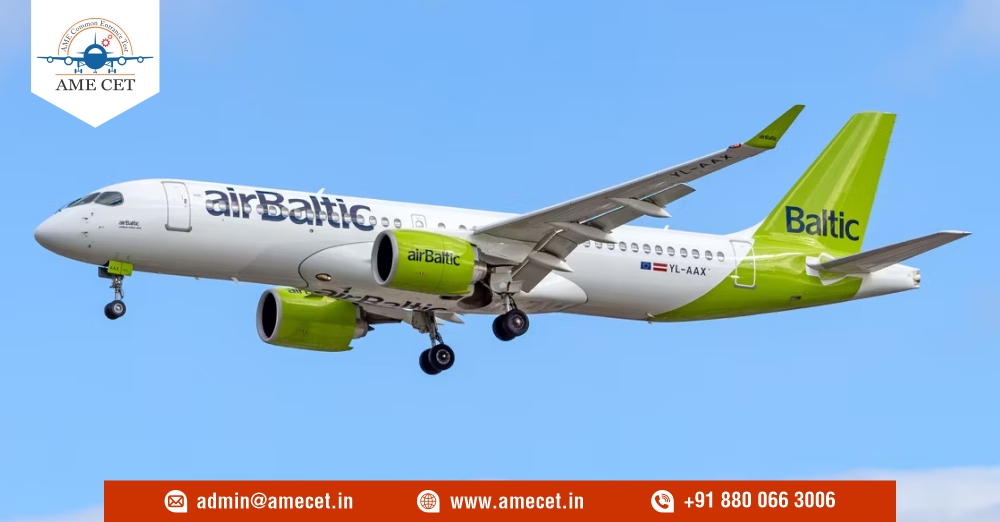
airBaltic's Exciting Expansion Plans for Summer 2024: 11 New Routes and A220 Fleet Growth
The Baltic airline airBaltic is all set to enhance its services for the upcoming summer of 2024. This involves introducing 11 new flight routes that aim to improve connections from the Baltics while consolidating its position as a leading airline in the region. Despite some challenges related to its fleet of airbus A220 aircraft, airBaltic is optimistic about its growth prospects.
New Routes for Enhanced Connectivity: airBaltic's CEO, Martin Gauss, revealed that the airline will launch 11 new routes next summer. These routes are designed to better connect the Baltics with various destinations in Central and Southeastern Europe. This expansion is aimed at making travel more convenient for people in the region.
Route Details: The newly announced routes include flights from Riga, Latvia, as well as other Baltic capitals. Some examples include flights to Alicante, Tirana, Sofia, and more. The flights are planned to start from February 2024, offering affordable prices to passengers.
Growth Strategy for Summer 2024: CEO Gauss explained that airBaltic's strategy for summer 2024 is based on careful market analysis and passenger demand assessment. The airline aims to increase its network coverage, particularly in Central and Southeastern Europe, by introducing direct flights from the Baltic and Nordic countries. This strategy will not only cater to leisure travelers but also support business travelers.
Challenges with A220 Fleet and Solutions: While airBaltic's growth plans are exciting, they come with challenges related to its Airbus A220 fleet. The airline is cautiously considering ordering more A220s to expand its fleet, but it has been dealing with issues like supply chain disruptions and delays in engine maintenance. The CEO is hopeful that these challenges will be resolved, allowing the fleet to operate efficiently and avoid the need for leasing older aircraft.
Benefits for Aspiring Aviation Students: For students aspiring to join the aviation sector, airBaltic's expansion presents several advantages:
-
Wider Job Opportunities: With new routes and an expanding fleet, airBaltic will likely require more personnel, including pilots, cabin crew, maintenance staff, and ground personnel. This creates job opportunities for aviation students entering the workforce.
-
Industry Insights: The challenges airBaltic faces with its A220 fleet provide valuable real-world insights into aviation operations and management. Students studying aviation can gain a deeper understanding of supply chain dynamics and fleet management strategies.
-
Market Understanding: airBaltic's strategic approach to growth based on market analysis and passenger demand offers students insights into how airlines adapt and expand according to changing travel patterns and customer preferences.
-
Networking and Internships: As airBaltic expands, it may engage with educational institutions to offer internships, mentoring programs, or workshops. This provides students with opportunities to build connections and gain hands-on experience.
-
Witnessing Resilience: Observing how airBaltic navigates challenges and adapts to unforeseen situations can inspire students to develop problem-solving skills and resilience, crucial qualities in the aviation industry.
Category
-
Aircraft Maintenance Engineering (DGCA) (62)
-
(268)
-
Cabin Crew (1)
-
Aerospace Engineering (3)
-
Aeronautical Engineering (2)
-
Airport Management (5)
-
Aircraft Maintenance Engineering (EASA) (6)
-
Airport Ground Staff (1)
-
Commercial Pilot License(CPL) (51)
-
Aircraft Maintenance Engineering (BTech/BE) (1)
-
B.Sc. in Aviation (1)
-
AME CET (5)
